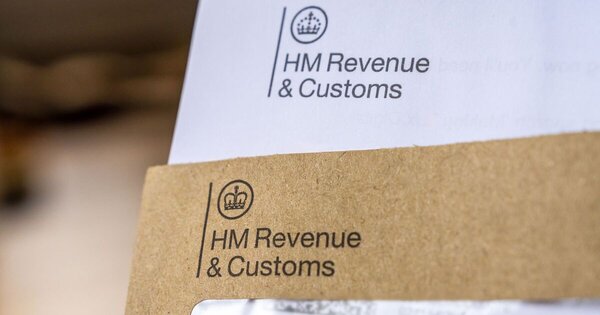So, let me explain...
Thinking of starting your own business?
Becoming a sole trader is one of the simplest and most popular ways to work for yourself in the UK. With fewer legal formalities than setting up a limited company, it’s an easy route to self-employment, but there are still important steps you need to take to set up your sole trader business.
In this guide, we’ll cover everything you need to know about how to register as a sole trader, including how to sign up with HMRC, what tax obligations to be aware of, and key deadlines you can’t afford to miss.
Let’s get started!
What Is A Sole Trader?
Thinking about going self-employed but not sure what being a sole trader actually means?
No worries, you’re in the right place!
A sole trader is just someone who runs their own business without setting up a limited company. Essentially, a sole trader is a self-employed person who has complete control over their business. It’s the simplest and most popular way to work for yourself in the UK.
There’s less paperwork, fewer legal hoops, and you get to keep all the profits after paying tax. The catch? You’re personally responsible for any business debts, so if things go south, you’re on the hook.
Unlike limited companies, sole traders don’t have to register with Companies House or file annual accounts. But you do need to register with HMRC, file a self-assessment tax return, and pay income tax plus National Insurance Contributions (NICs) on your profits.
If dealing with tax and expenses sounds stressful, don’t panic! Our free Pie Tax app makes it super easy to track your income, claim expenses, and file your tax return.
Why make tax harder than it needs to be?

Who Needs to Register as a Sole Trader?
Wondering if you actually need to register as a sole trader? The rule is pretty simple: if you earn more than £1,000 from self-employment in a tax year, HMRC expects you to register.
This applies whether you’re a full-time freelancer, running a small business, or just earning extra cash from side gigs. Even if you have a full-time job, any additional self-employed income counts toward this threshold.
Some people choose to register even if they earn less than £1,000. This can be useful for claiming business expenses, proving your self-employment status for benefits or mortgages, and making sure you’re ready for growth when your business takes off.
If you’re serious about your side hustle or business, registering as a sole trader early can save you hassle later. Plus, it keeps you in HMRC’s good books!
How to Register as a Sole Trader
Getting set up as a sole trader is simple! No endless paperwork or confusing steps.
Just head over to the official HMRC website and register for self-assessment by setting up an online account. HMRC will send you a Unique Taxpayer Reference (UTR) within about 10 days, which you’ll need when filing your tax return.
If you want to trade under a business name, you can, but you still need to include your own name on official documents like invoices. Unlike a limited company, you don’t need to formally register the name, but it can’t be misleading or offensive.
Once registered, keeping track of your finances is the key! A separate business account helps manage income and expenses, and good record-keeping ensures you can claim allowable expenses like travel, marketing, or office costs.
Get organised early, and tax time will be far easier!

What Happens After You Register?
Once HMRC gives you the green light, your next job is to file a self-assessment tax return every year.
This is how you’ll work out how much income tax and National Insurance Contributions (NICs) you need to pay after deducting any allowable expenses.
You’ll also need to keep an eye on payment deadlines. Most sole traders pay tax twice a year: 31 January for the previous tax year and 31 July as an advance payment for the next one. Miss a deadline?
HMRC isn’t shy about handing out penalties and interest charges, so planning ahead is a must.
If your business turnover hits £85,000, you’ll need to register for VAT. That means charging VAT on sales, filing VAT returns, and (on the plus side) potentially reclaiming VAT on purchases. Understanding whether sole traders pay VAT is key. for managing your business finances.
Staying on top of earnings, expenses, and tax deadlines is key to avoiding nasty surprises. Our free Pie Tax app makes it easier by helping you track everything in one place, so tax season doesn’t have to be a nightmare!
Tax Obligations for Sole Traders
As a sole trader, you don’t pay tax on everything you earn! Just your profits after deducting allowable expenses. Understanding sole trader pay is essential for managing your tax obligations effectively. For the 2025 tax year, here’s how the tax bands break down:
Up to £12,570 – No tax at all (Personal Allowance)
£12,571 to £50,270 – 20% (Basic Rate)
£50,271 to £125,140 – 40% (Higher Rate)
Over £125,140 – 45% (Additional Rate)
But that’s not all! There’s also National Insurance Contributions (NICs) to think about:
Class 2 NICs – £3.45 per week if your profits are over £12,570
Class 4 NICs – 9% on profits between £12,570 and £50,270, then 2% on anything above that
The good news? Business expenses help lower your taxable income, meaning you pay less tax overall. Things like office costs, travel, professional fees, and marketing expenses can all be deducted.
So, keeping good records isn’t just smart, it saves you money!

Key Deadlines to Remember
When it comes to sole trader tax, staying on top of deadlines is key! HMRC doesn’t mess around when it comes to late fees and penalties, so it’s worth marking these dates in your calendar early.
Register with HMRC – You need to sign up as a sole trader by 5 October after your first tax year of trading. Miss this, and you could end up with fines before you’ve even started properly!
File your self-assessment tax return – This needs to be done online by 31 January every year. It covers your income, expenses, and tax owed for the previous tax year.
Pay any tax owed – The main payment deadline is 31 January, but if you need to make advance payments (called payments on account), you’ll also have a second payment due on 31 July.
Leaving things last minute can be a disaster! No one wants a surprise tax bill hanging over them.
Setting up reminders and keeping good financial records throughout the year will help avoid stress, penalties, and unexpected costs.
The better organised you are, the smoother tax season will be!
FAQs – Common Questions About Registering as a Sole Trader
Got questions about registering as a sole trader? You’re not alone! Whether you’re juggling a side hustle, wondering about tax deadlines, or thinking about switching to a limited company later, here are the answers to some of the most common queries.
Do I need to register as a sole trader if I have another job?
Yes! If you earn more than £1,000 from self-employment, even if you also have a full-time job, HMRC expects you to register.Can I register as a sole trader after I start trading?
Absolutely! But don’t leave it too late. You need to register by 5 October following the end of the tax year in which you started.Do I need an accountant to register as a sole trader?
Nope! Registering is simple, and you can do it yourself. That said, an accountant can be handy for tax planning and making sure you’re claiming all your business expenses.Can I switch from a sole trader to a limited company later?
Yes! Many small businesses start as sole traders and incorporate later when they grow.
For more details, check out the official HMRC guide on registering as a sole trader!
Final Thoughts
Becoming a sole trader is one of the easiest ways to start your own business. There’s less paperwork, fewer legal hoops, and you get to keep all your profits (after tax, of course!)
Just make sure you register on time, track your income and expenses, and stay on top of tax deadlines because HMRC won’t chase you, but they will fine you if you forget!
If sorting out taxes and expenses sounds like a headache, don’t stress, Pie Tax has you covered. Our free tax app helps you track earnings, claim expenses, and file your self-assessment tax return without the hassle.
No spreadsheets, no confusion! Just easy tax management, all in one place.
Download today and make tax season stress-free!











